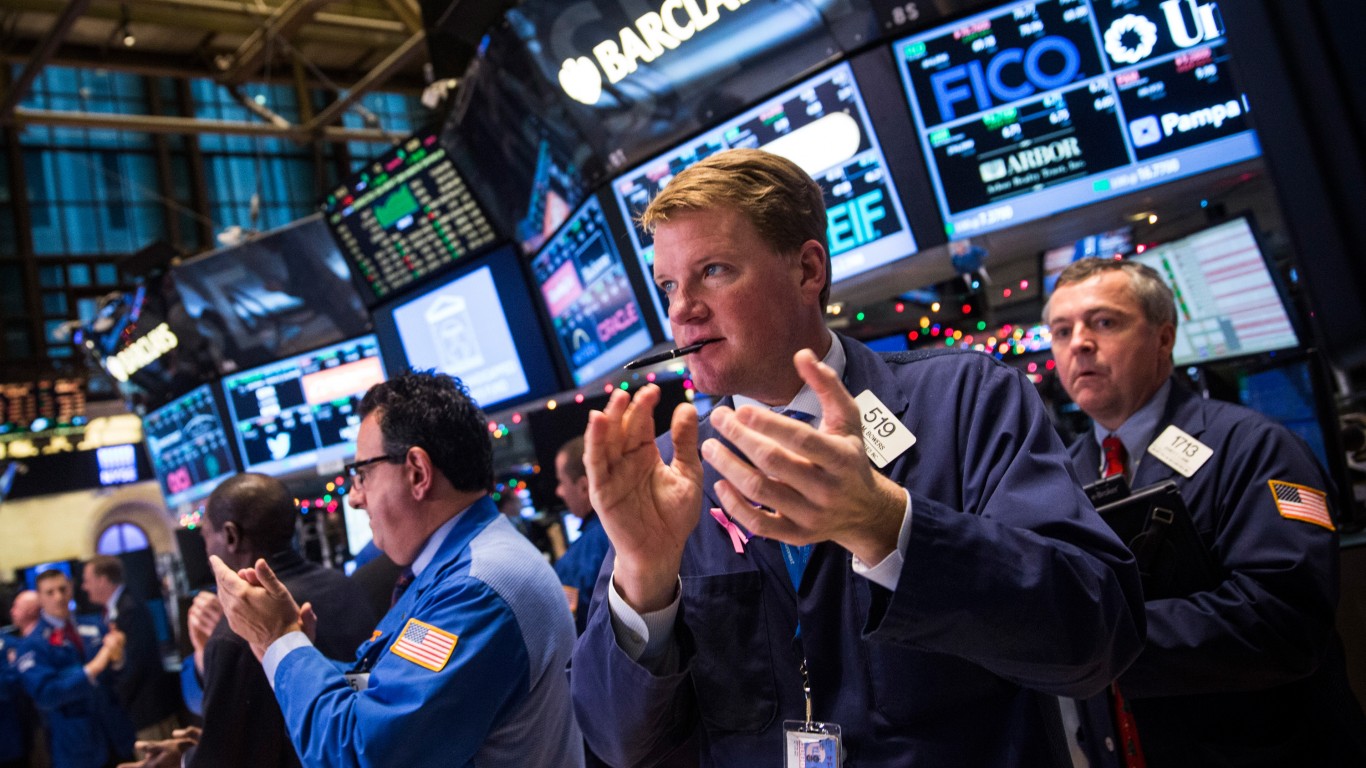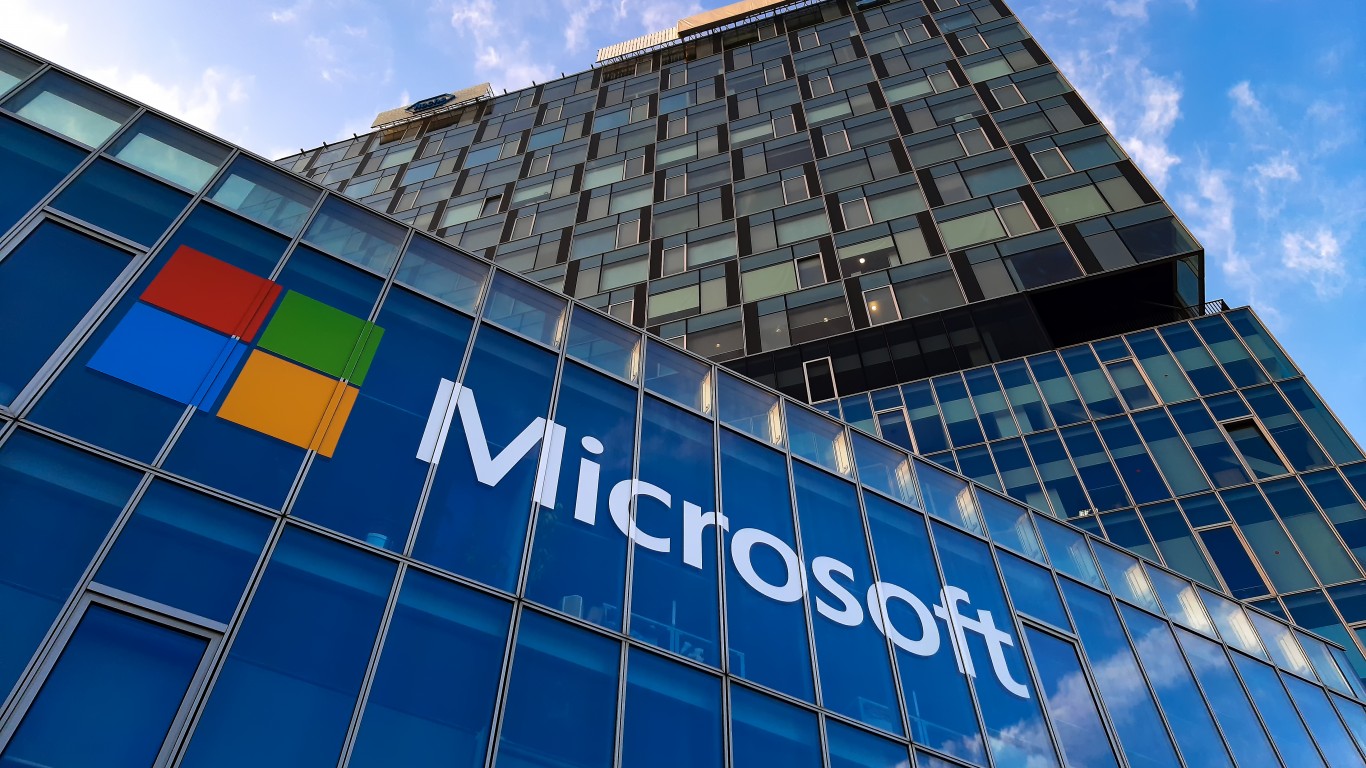
You can say hedge fund operator Ken Griffin likes diversification. His Citadel Advisors has almost 7,000 positions in its portfolio. With more than $102 billion in assets under management, the hedge fund ensures that no single stock will hurt its performance if it fails.
Whether an individual investor should be so broadly diversified is another question. A portfolio of two or three dozen stocks should give you the diversification you need over sectors, industries, and geographies without turning yourself into an all-market index fund.
Yet Griffin has been an extremely successful investor. His flagship Wellington Fund has generated 19.6% annualized returns since its founding in 1990, nearly twice the S&P 500 and on par with Warren Buffett, though the Oracle’s has done that for 60 years running.
While Griffin did add a bunch of new stocks to his portfolio last quarter, while also selling out of several, among the portfolio’s biggest holdings were a number of positions that saw the billionaire make significant reductions. The following three stocks were the ones that he trimmed the most.
Key Points About This Article:
- Ken Griffin has been one of the most successful investors over the past three decades, generating annualized returns of nearly 20% for his flagship Wellington Fund since its creation in 1990.
- The billionaire investor has an incredibly diversified portfolio with nearly 7,000 positions in Citadel Advisors, but Griffin recently slashed a few of his more prominent holdings.
- If you’re looking for some stocks with huge potential, make sure to grab a free copy of our brand-new “The Next NVIDIA” report. It features a software stock we’re confident has 10X potential.
PayPal Holdings (PYPL)

Payments platform PayPal Holdings (NASDAQ:PYPL) has faced harsh headwinds in recent years as competition edge in on its industry dominance and the online shopping boost of the pandemic normalized. Although revenue and profits were challenged, new CEO Alex Criss is turning the ship around.
Because PayPal has its feet planted firmly on both sides of a transaction with offerings for merchants and consumers, it is fairly distinctive in the space though that could rapidly change in the near future. Yet the payments platform has its own competitive strengths. Its Braintree mobile and web payments system is quickly emerging as a robust, profitable contributor to PayPal’s performance.
Braintree’s volumes grew 19% in the second quarter and began contributing to transaction margin dollar growth (that’s essentially PayPal’s gross profit line). Transaction margin dollars rose 8% in the quarter to $3.6 billion.
Despite this improved performance, Griffin was selling down his stake in PYPL stock, shedding off some 2.4 million shares. He still owns a significant amount, or about 6.3 million shares, which are valued at $363 million.
S&P Global (SPGI)

Financial services and analytics firm S&P Global (NYSE:SPGI) is the next stock that saw a big cut from Griffin. He slashed his holdings by almost one-third to 1 million shares worth $460 million.
It’s a surprising cut since Griffin has been building up his stake and it reached over 1.5 million shares in the first quarter.
Because S&P Global has also been a terrific dividend growth stock to own, Citadel has also received hefty quarterly payments. Although the dividend yields less than 1% annually, the financial services firm has grown the payout at a compound annual rate in excess of 11% for the past decade. The dividend has grown from $1.12 per share in 2013 to $3.64 per share today.
While S&P Global owns the S&P 500 index, its rating business has been a strong profit driver for the company, with operating profits rising 33% in the second quarter. That represented 41% of the total. It also allowed management to significantly hike its segment revenue guidance to 14% to 16% growth compared to its previous outlook of 7% to 9% growth.
With SPGI stock up 35% over the last year and 19% higher in 2024, Griffin may have been taking some profits.
Microsoft (MSFT)

The largest reduction Griffin made in his portfolio, aside from the stocks he sold completely out of, was tech giant Microsoft (NASDAQ:MSFT). The billionaire slashed his holdings in the stock by over 58%, reducing them to 1.2 million shares from over 1.7 million shares.
Yet Griffin has been cutting his stake since last year even as other billionaire investors were increasing their’s. At the end of last year’s third quarter, the hedge fund manager held over 5 million shares, meaning he has reduced his position by more than 75%. He left a lot of money on the table.
Microsoft stock is up 31% over the past year as its Azure business has quickly become the fastest-growing cloud services platform. Segment revenue jumped 29% in the second quarter to $28.5 billion, giving it a 23% share of the market. MSFT stock is up 15% year-to-date and has gained 78% since the artificial intelligence boom began in late 2022.
Take Charge of Your Retirement In Just A Few Minutes (Sponsor)
Retirement planning doesn’t have to feel overwhelming. The key is finding expert guidance—and SmartAsset’s simple quiz makes it easier than ever for you to connect with a vetted financial advisor.
Here’s how it works:
- Answer a Few Simple Questions. Tell us a bit about your goals and preferences—it only takes a few minutes!
- Get Matched with Vetted Advisors Our smart tool matches you with up to three pre-screened, vetted advisors who serve your area and are held to a fiduciary standard to act in your best interests. Click here to begin
- Choose Your Fit Review their profiles, schedule an introductory call (or meet in person), and select the advisor who feel is right for you.
Why wait? Start building the retirement you’ve always dreamed of. Click here to get started today!
Thank you for reading! Have some feedback for us?
Contact the 24/7 Wall St. editorial team.





